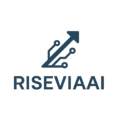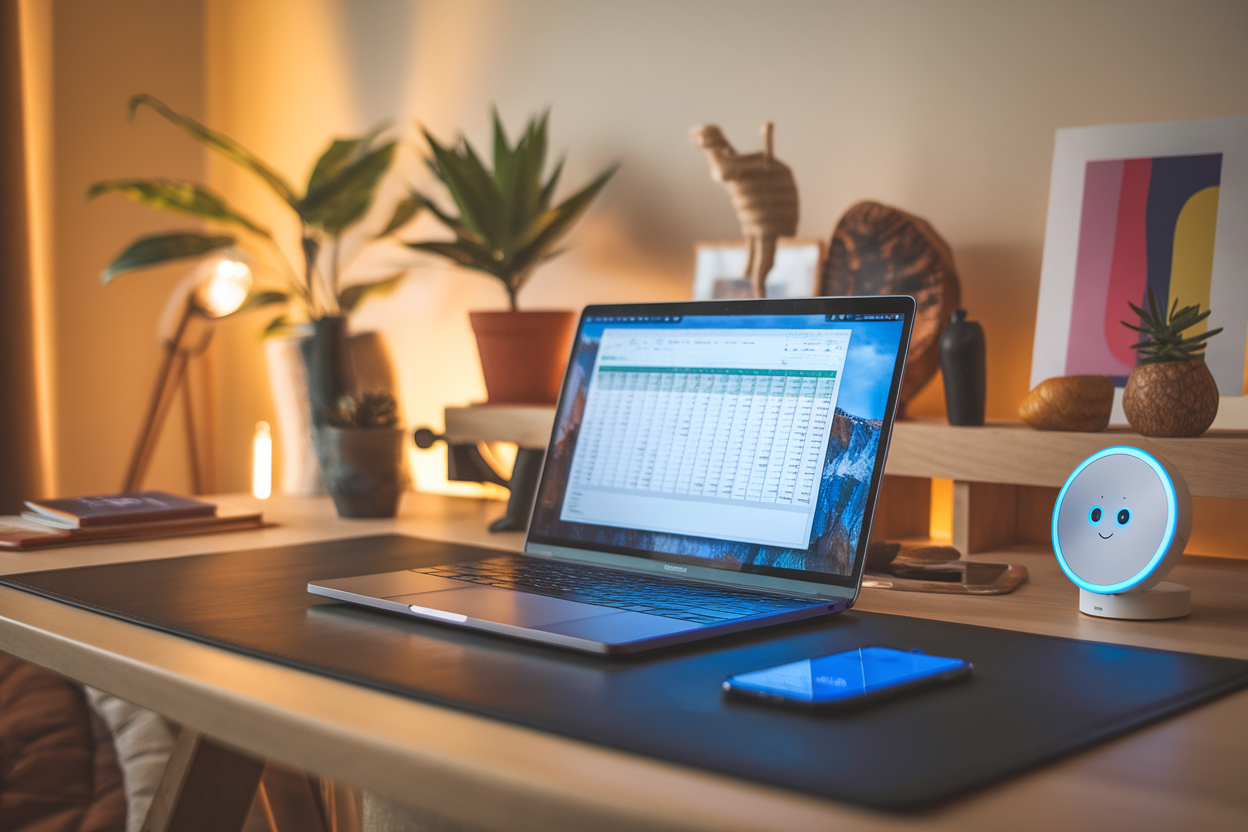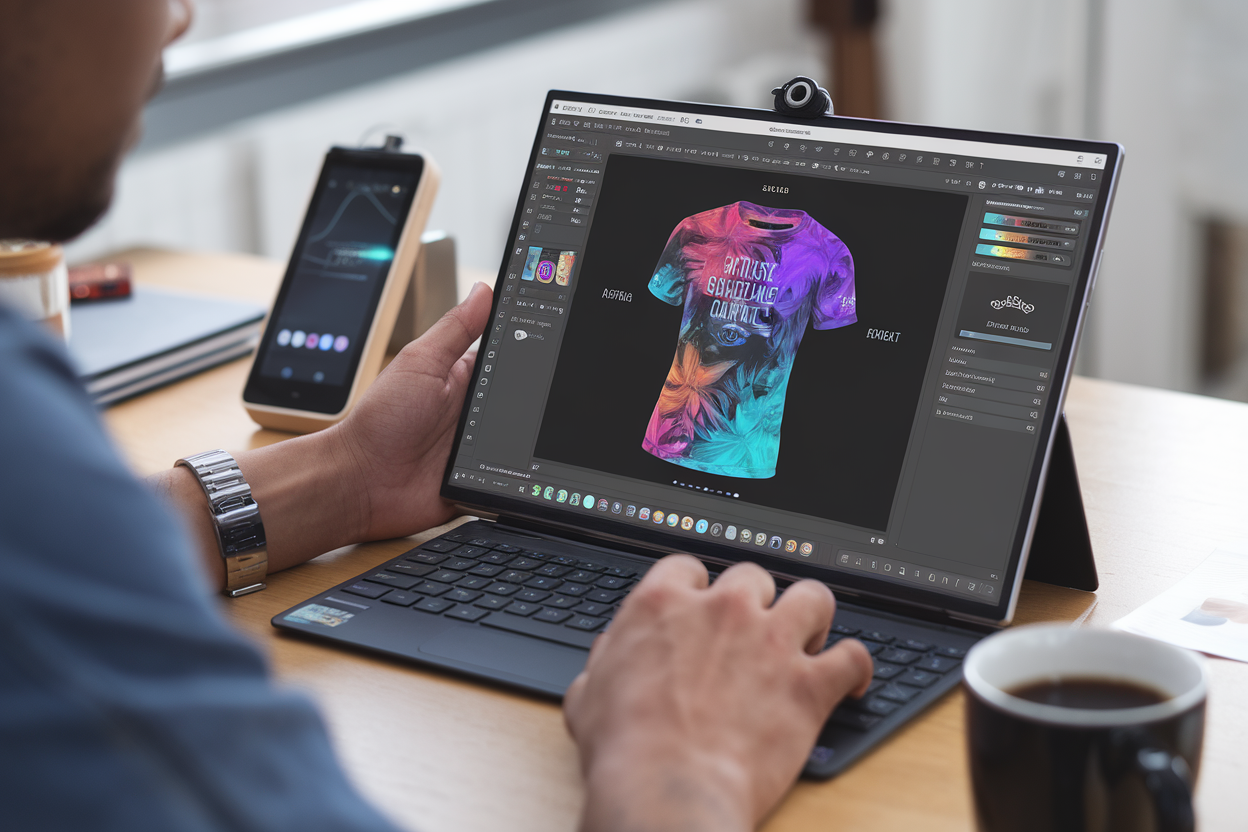Picture this: It’s Monday morning. Your inbox is already screaming with 72 unread emails, three meetings overlap on your calendar, and somewhere in the chaos, you forgot to send that “urgent” report on Friday. Sound familiar?
Now imagine if you had a personal assistant that never sleeps, never complains, and actually learns your preferences over time. That’s exactly what happens when you use AI to organize your life and work.
I’ll be honest with you—I used to drown in sticky notes, Google Docs, and endless task lists. It felt like productivity theater: I was busy, but not effective. Then I started integrating AI into my daily routines. And the difference? Night and day.
In this guide, I’ll walk you through how to:
- Harness AI to manage your calendar and tasks.
- Streamline your personal life (yes, even grocery lists).
- Choose the right AI tools for your lifestyle.
- Avoid common mistakes that make AI feel overwhelming.
This isn’t about robots taking over your life. It’s about reclaiming control and making room for things that matter—like finally taking that walk, cooking dinner with family, or just watching Netflix without guilt.
Table of Contents
Table of Contents
Why You Should Use AI to Organize Your Life and Work
Let’s face it: productivity isn’t about working more—it’s about working smarter. Yet most of us live with scattered attention, pinging notifications, and a growing sense of burnout.
Here’s where AI changes the game:
- Automates the mundane → No more manually rescheduling meetings.
- Learns your habits → AI recognizes when you focus best and structures tasks around that.
- Reduces decision fatigue → You don’t waste energy deciding what to do next.
- Balances life and work → AI doesn’t just manage tasks; it helps you protect personal time.
Quick Stat: According to a McKinsey study, AI-powered productivity tools can save professionals up to 20 hours per month by automating repetitive tasks. That’s nearly 3 workweeks saved per year.
Deep Dive: The Best AI Tools to Organize Your Life
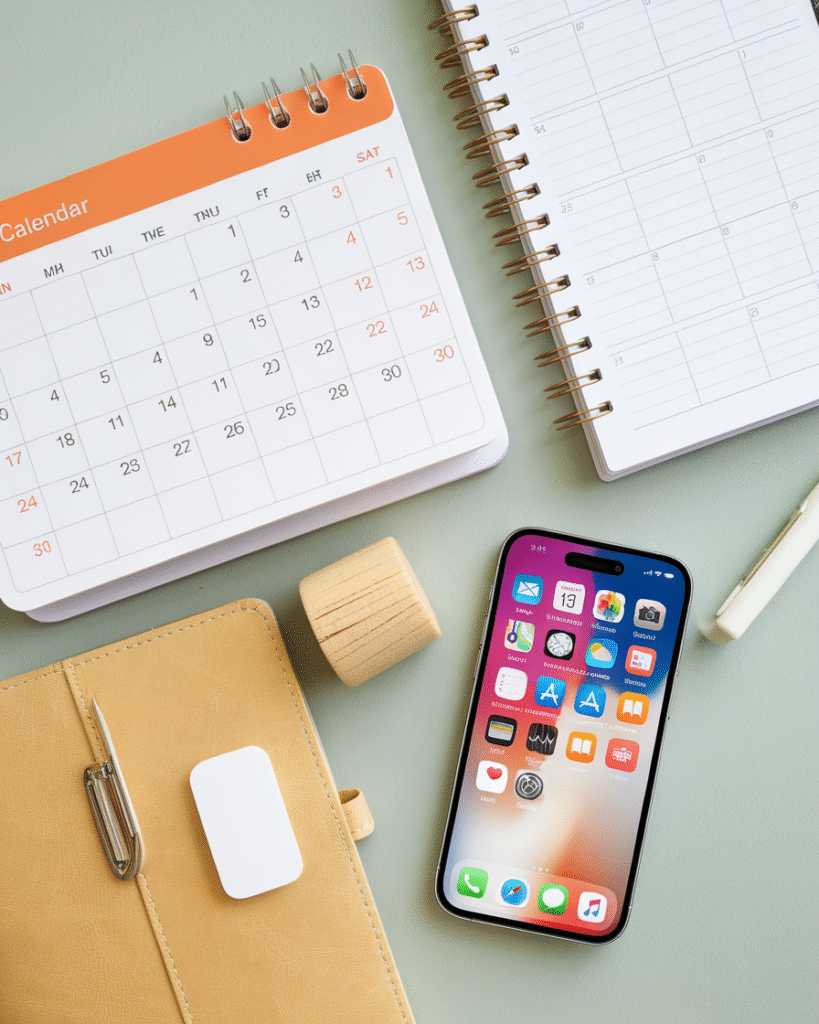
We’re spoiled with choices, but here’s the breakdown of the most powerful AI productivity tools in 2025.
Reclaim AI – The Smart Calendar Wizard
Reclaim AI is like the Tetris master of calendars. Instead of you juggling blocks (meetings, deep work, errands), it arranges them perfectly.
Key Features:
- Auto-scheduling: Finds time for tasks between meetings.
- Habit tracking: Schedules workouts, lunch breaks, and reading time.
- Real-time adjustments: Meetings change? Reclaim adapts instantly.
Case Study:
I once coached a freelancer who was constantly double-booking herself. After syncing her Google Calendar with Reclaim AI, she not only stopped missing deadlines but also finally got consistent “me time.” Her words: “It feels like my calendar finally works for me, not against me.”
Best For: Anyone juggling unpredictable schedules—consultants, freelancers, or parents balancing work and family.
Motion AI – The AI Project Manager
Think of Motion AI as your personal chief of staff. Instead of just giving you a list of tasks, it actively prioritizes them based on urgency, deadlines, and your productivity rhythm.
Key Features:
- AI-driven task prioritization.
- Dynamic scheduling: reschedules when you miss something.
- Team collaboration: assigns tasks across groups.
Comparison with Reclaim AI:
- Reclaim AI shines at habit + calendar integration.
- Motion AI is stronger for complex projects and task management.
Example: A startup team used Motion AI to organize their sprint planning. Instead of wasting 2 hours in meetings arguing priorities, Motion AI structured their week in minutes.
Best For: Entrepreneurs, managers, and teams with shifting priorities.
Notion AI – The Life Organizer
Ah, Notion AI—the darling of productivity enthusiasts. If you’re someone who loves customization and aesthetics, this tool is your playground.
Key Features:
- AI writing assistant (draft emails, meeting notes, blog posts).
- Task boards + database integration.
- Customizable dashboards for personal and work life.
How People Use It:
- Life Organiser Notion dashboards: From meal planning to travel itineraries.
- Notion life management: Journaling, goal tracking, habit monitoring.
- Best ways to use Notion: Pair with AI plugins like Reclaim AI for ultimate control.
Story: A student I interviewed built a “second brain” in Notion AI—tracking assignments, job applications, workouts, and even grocery lists. She said it cut her stress by half and gave her clarity she never had before.
Best For: Creative professionals, students, and anyone who wants one “hub” for everything.
Other Helpful AI Tools
- Otter.ai → AI meeting notes & transcriptions.
- GrammarlyGO → Smart email drafts & content writing.
- RescueTime → AI-powered time tracking.
- Originality AI → Writers’ favorite for ensuring authentic content.
How to Use AI to Organize Your Personal Life

AI isn’t just for boardrooms—it’s equally powerful for personal life.
Daily Routines
- Hydration & workouts: AI health apps remind you to move and drink water.
- Meal planning: Apps like EatLove suggest recipes based on your fridge inventory.
- Mindfulness: AI-guided meditation adapts sessions based on your stress levels.
Finances & Home
- Budgeting: AI apps like YNAB analyze spending and predict trends.
- Shopping lists: Alexa and Google Home add items automatically.
- Cleaning: Robotic vacuums now optimize paths with AI for efficiency.
Case Example: A busy dad I spoke with used AI grocery planners. It synced with his fridge inventory, auto-built a shopping list, and even placed online orders. He saved 4–5 hours weekly.
How to Use AI to Organize Your Work
Work is where AI shines brightest.
Smarter Task Management
AI sorts tasks by urgency, deadlines, and complexity. For instance, Motion AI can recognize that preparing a client pitch takes more effort than replying to a Slack message.
Emails Without Tears
Gmail’s Smart Reply is just the start. Tools like Superhuman (AI-enhanced email client) prioritize important emails and even draft replies based on your style.
Deep Work Protection
Apps like Freedom AI block distractions at peak focus times. RescueTime suggests when you’re most productive—and nudges you when you drift.
How AI Improves Mental Clarity
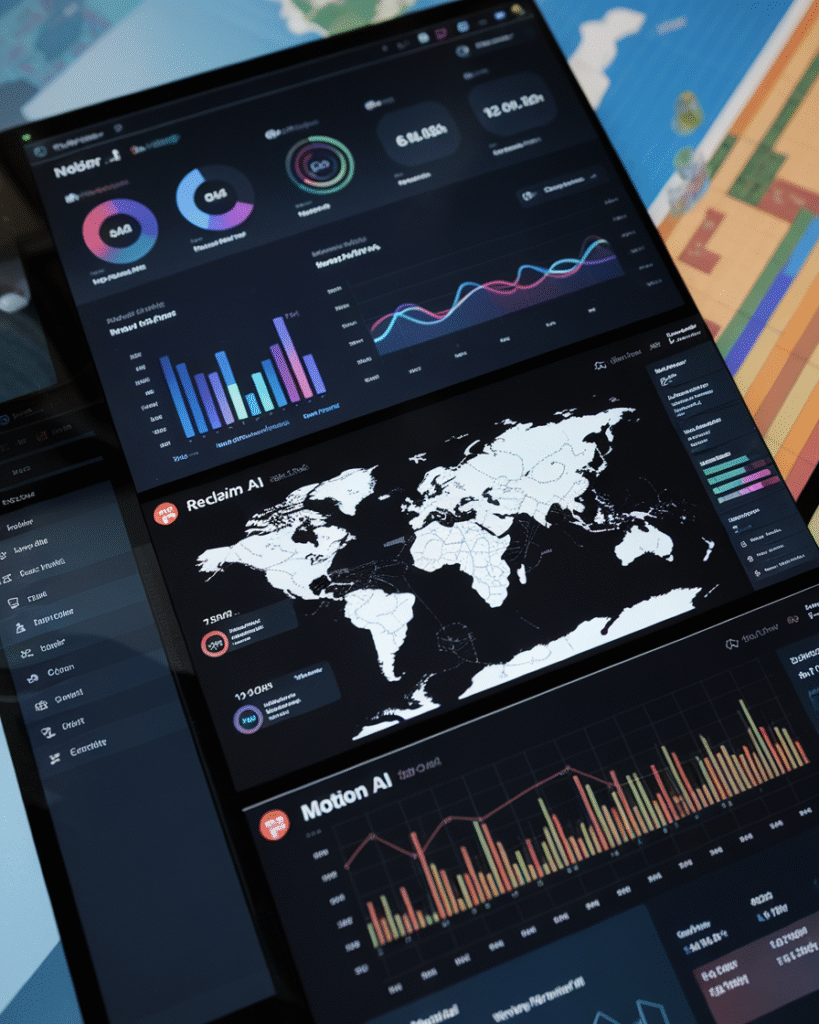
By outsourcing micro-decisions, you reduce decision fatigue—a major productivity killer. AI acts like a filter, only showing you what truly matters.
Benefits:
- More brainpower for creativity.
- Less stress from multitasking.
- A healthier balance between focus and downtime.
Common Mistakes to Avoid When You Use AI to Organize Your Life and Work
AI tools are powerful, but let’s be real—many people set themselves up for failure by misusing them. If you want to use AI to organize your life and work effectively, avoid these common pitfalls.
1. Tool Overload – Too Many Apps = Chaos
One of the biggest mistakes is downloading every shiny new AI productivity app that hits the market. Suddenly, you’re managing your calendar in Reclaim, tasks in Motion, notes in Notion, and then still using sticky notes because you can’t remember where things live.
Why it’s a problem:
- Splintered focus.
- Duplicate tasks and reminders.
- More time “managing tools” than actually working.
Solution:
Start with one or two tools and master them first. For example, begin with Notion AI for life management and Reclaim AI for scheduling. Once they feel natural, only then consider adding another.
2. Over-Trusting AI Without Verification
AI is brilliant, but it’s not perfect. Blindly trusting it with critical information—like financial decisions or important work deadlines—can backfire.
Example: Imagine letting AI fully automate your client emails. If the tone comes off too cold or robotic, you could damage relationships without even realizing it.
Solution:
Treat AI as an assistant, not a replacement. Always review drafts, check numbers, and personalize content where needed. When you use AI to organize your life and work, think of it as “AI plus you”—not “AI instead of you.”
3. Ignoring Balance – Don’t Fall into Hustle Culture 2.0
Here’s the irony: many people adopt AI tools to “work smarter,” but instead, they end up cramming even more into their schedules. AI makes things efficient, but that doesn’t mean you need to fill every gap with more work.
Solution:
Use AI to protect downtime too. For example, let Reclaim AI block out family dinners, gym time, or creative hobbies on your calendar. Balance isn’t a luxury—it’s part of sustainable productivity.
4. Expecting Instant Results
Some people try AI for a week, don’t see massive results, and quit. But like any system, learning to use AI to organize your life and work takes time. It’s about building habits, not chasing hacks.
5. Forgetting Human Creativity
AI is great at managing structure, but it can’t dream for you. Don’t outsource brainstorming, passion projects, or personal growth entirely to algorithms. Use AI for organization, then use your freed-up mental space to innovate and live more fully.
To help you go deeper, here are some valuable resources on using AI for smarter living and working:
📌 Related Reads on Our Blog
- AI Investing for Beginners: Step-by-Step Guide – Learn how to use AI for smarter wealth management.
- How to Use AI for Real Estate Deals – Discover how AI helps investors spot opportunities.
📌 Authoritative External Sources
- OpenAI – Industry leader advancing AI responsibly.
- MIT Tech Review on AI – Deep dives into AI’s impact on society and productivity.
- How to Use AI – Art of Manliness – A practical guide on integrating AI into everyday life.
Five More Powerful Ways to Use AI to Organize Your Life and Work
To expand further, here are five long, well-explained strategies to get even more value from AI.
1. Use AI to Protect Mental Health
AI wellness apps track stress levels, recommend breathing exercises, and encourage downtime. Some, like Woebot, even offer AI-driven therapy-style chats. By letting AI monitor your mental health signals, you can step in before burnout hits.
2. AI-Powered Knowledge Management
Overwhelmed by articles, notes, and ideas? Tools like Mem AI automatically organize your knowledge, pulling connections between projects and insights. It’s like having a personal librarian.
3. Smarter Collaboration With Teams
When you use AI to organize your life and work in a team context, you eliminate constant back-and-forth. AI-powered tools assign tasks, schedule meetings, and summarize discussions. This keeps everyone aligned without endless Slack threads.
4. AI for Financial Organization
Apps like Cleo and YNAB use AI to track spending, predict cash flow, and nudge you toward savings. Imagine AI alerting you: “You usually overspend on takeout mid-month. Want me to suggest a grocery budget?”
5. AI for Continuous Learning
Staying sharp is part of life and work. AI learning platforms (like Coursera AI tutors or Duolingo AI) personalize study plans so you’re always learning at your own pace. It organizes not just your tasks but also your personal growth roadmap.
Real-Life Success Stories: How People Use AI to Organize Their Life and Work
It’s one thing to talk about tools in theory, but the real magic happens when we see them in action. The following real-life success stories show how people from different walks of life have completely transformed their daily routines, productivity, and even mental health by choosing to use AI to organize their life and work.
Case Study 1: The Overbooked Freelancer Who Found Balance with Reclaim AI
Meet Sarah, a freelance graphic designer. Her biggest struggle? Time. She was constantly running late to client calls, double-booking herself, and squeezing design work into odd hours.
Sarah started using Reclaim AI to automatically schedule both client projects and personal habits into her Google Calendar. What happened next was game-changing:
- Her mornings were blocked for deep work—no more distractions.
- Client calls were slotted into natural gaps without her having to shuffle things around manually.
- Even her coffee breaks and gym sessions were scheduled automatically, which meant she actually took them.
“I finally feel like I’m in control of my time instead of chasing it,” Sarah told me. “It’s like my calendar learned to breathe with me.”
Key Takeaway: By learning to use AI to organize your life and work, you don’t just get more done—you reclaim energy for yourself.
Case Study 2: The Startup Team That Boosted Productivity with Motion AI
A tech startup in Austin had a common problem: meetings and shifting deadlines consumed their week. Their team of six felt like they were always running behind, despite working late nights.
Enter Motion AI. Instead of spending two hours in meetings deciding priorities, they plugged tasks and deadlines into the app. Motion AI automatically created daily schedules for each team member, reassigning priorities when urgent tasks popped up.
The result?
- Weekly sprint meetings dropped from 2 hours to just 30 minutes.
- Deadlines were consistently met.
- Team members reported feeling “less guilty” about logging off on time.
One of the co-founders said: “Motion AI feels like having a project manager who never gets tired, never loses track, and actually cares about our work-life balance.”
Key Takeaway: Teams that use AI to organize their life and work save time on coordination and focus more on actual output.
Case Study 3: The Student Who Built a “Second Brain” in Notion AI
Alex, a college student in New York, struggled with keeping track of assignments, part-time job shifts, and social life. Sticky notes weren’t cutting it, and his Google Drive looked like a tornado hit it.
He discovered Notion AI and built what productivity nerds call a “Second Brain.” With dashboards that tracked assignments, due dates, personal goals, and even a gratitude journal, Alex finally felt organized.
- Notion AI summarized textbook chapters for him, saving study hours.
- It drafted cover letters and internship applications.
- His entire week—from classes to chores—was visualized in one place.
Alex said: “For the first time, I don’t feel like college is drowning me. Notion AI gave me clarity and structure.”
Key Takeaway: Students can use AI to organize their life and work by letting it handle the structure while they focus on learning.
Case Study 4: The Remote Worker Who Beat Burnout with AI Time Tracking
Michael, a remote software engineer, thought working from home would mean freedom. Instead, he found himself working 12-hour days without realizing it. Burnout hit fast.
He installed RescueTime AI, which analyzed his screen time and suggested healthier patterns.
- It showed him he was most productive between 9 AM and 1 PM.
- It automatically blocked distracting websites during deep work sessions.
- It nudged him to log off when he exceeded healthy work hours.
After three months, Michael’s hours dropped from 60 per week to 40—but his output actually increased.
“RescueTime was like holding up a mirror,” Michael shared. “It showed me the truth about my habits and gave me the push to fix them.”
Key Takeaway: If you use AI to organize your life and work, you can prevent burnout by letting data guide healthier rhythms.
Case Study 5: The Busy Parent Who Finally Found Family Time
Emily, a working mom of two, was juggling a demanding job, kids’ soccer practices, grocery shopping, and household chores. She felt like she was constantly running but never present.
She turned to AI meal planners, calendar apps, and voice assistants to bring order into the chaos.
- AI meal planning apps created weekly menus based on her family’s preferences.
- Reclaim AI blocked out family dinner every evening.
- Alexa reminders made sure homework time didn’t slip through the cracks.
Within weeks, Emily noticed she was spending more quality time with her kids and less time scrambling.
“I use AI to organize my life and work, but what it really gave me back was family time,” she said with a smile.
Key Takeaway: Parents can use AI not to work more—but to live more.
Case Study 6: The Writer Who Boosted Creativity with Originality AI
James, a content creator, constantly worried about plagiarism and the rising wave of AI-written content. He wanted to protect his voice and credibility.
Using Originality AI, James now runs all his work through the tool to ensure authenticity. He also uses AI brainstorming apps for idea generation, but carefully refines them with his own touch.
- He saved time brainstorming article topics.
- He built trust with clients who valued originality checks.
- His creativity flourished because he wasn’t bogged down by admin tasks.
Key Takeaway: Even creatives can use AI to organize their life and work, freeing up mental bandwidth for inspiration.
What These Stories Teach Us
Across all these stories, the pattern is clear: when you use AI to organize your life and work, you gain:
- Time freedom → AI automates scheduling and tasks.
- Mental clarity → Less decision fatigue, more creativity.
- Balance → Space for personal life, family, and self-care.
- Confidence → Tools like Originality AI ensure authenticity and professionalism.
The truth is, AI isn’t just for techies. It’s for freelancers, students, parents, entrepreneurs—anyone who wants to tame the chaos of modern life.
Conclusion: Why You Should Use AI to Organize Your Life and Work
Here’s the truth: you don’t need to do it all yourself anymore. When you decide to use AI to organize your life and work, you unlock a completely different way of living. Instead of drowning in endless to-do lists, sticky notes, and half-finished projects, you gain clarity, balance, and freedom.
Think about it. Every minute you spend juggling emails, chasing deadlines, or trying to remember errands is a minute stolen from things that actually matter—family dinners, creative projects, quiet moments, or even rest. When you use AI to organize your life and work, you reclaim those stolen minutes.
Many people fear that AI makes us less human. But in reality, the opposite is true. When you use AI to organize your life and work, you automate the draining, repetitive tasks—the ones that sap your energy but don’t spark joy. That leaves you with more room for laughter, creativity, and human connection.
Why It Matters to Use AI to Organize Your Life and Work
- Mental clarity: You stop wasting brainpower on micro-decisions like “what’s next?”
- Time efficiency: You gain hours each week by letting AI handle the details.
- Life balance: You finally protect personal time while staying productive at work.
- Focus: You get back into deep work without interruptions.
When you use AI to organize your life and work, you don’t just become more productive—you become more present in your own life.
Start Small and Build Up
The beauty of AI is that you don’t need to overhaul your entire system overnight. You can start with one tool and grow from there.
- Try Reclaim AI to get control of your calendar. Let it schedule meetings, workouts, and focus blocks automatically.
- Explore Notion AI as your personal dashboard. Create a single space for notes, tasks, journaling, and life planning.
Once you feel the impact, you’ll naturally want to use AI to organize your life and work in more areas. That’s when you can add tools like Motion AI for team projects, RescueTime AI for focus, or even Originality AI if you’re a writer.
How People Feel When They Use AI to Organize Their Life and Work
Ask anyone who’s made the switch. They’ll tell you the same thing: relief.
- Students who use AI to organize their life and work say they feel less anxious about missing assignments.
- Entrepreneurs who use AI to organize their life and work report that their days finally feel structured instead of chaotic.
- Parents who use AI to organize their life and work find themselves enjoying quality family time without guilt.
It’s not just about productivity—it’s about peace of mind.
The Human Side of AI
Here’s the secret: AI isn’t replacing us. It’s amplifying us. When you use AI to organize your life and work, you’re not handing over control—you’re regaining it.
Instead of constantly firefighting and reacting, you become proactive. Instead of running on stress and caffeine, you operate with clarity and confidence. And instead of living in overwhelm, you live with intention.
That’s the gift of AI. Not cold automation, but warm empowerment.
What’s Stopping You?
So, what’s really holding you back? Fear of change? The worry that it’s “too techy”? The truth is, most AI productivity tools are incredibly user-friendly. And once you see how easy it is to use AI to organize your life and work, you’ll wonder why you didn’t start sooner.
Here’s a simple challenge: Pick one area of your life where you feel most disorganized. Maybe it’s your overflowing inbox. Maybe it’s your cluttered calendar. Maybe it’s that personal project you never have time for. Now, choose one AI tool to tackle it.
The moment you start to use AI to organize your life and work, you’ll feel the shift. Tasks stop slipping through the cracks. Meetings stop colliding. You stop running in circles.
Final Words
Remember this: AI doesn’t replace you—it empowers you.
When you use AI to organize your life and work, you’re not just improving productivity—you’re building a lifestyle where stress takes a back seat, and clarity takes the wheel. You’re giving yourself the freedom to focus on what actually brings joy and meaning.
So, whether it’s scheduling with Reclaim AI, creating dashboards in Notion AI, or streamlining tasks with Motion AI—start today. Watch how quickly the chaos melts into clarity.
Don’t just survive your days. Shape them. Design them. Own them.
And the best way to do that? Use AI to organize your life and work.
FAQ: Use AI to Organize Your Life and Work
How can AI help your life?
AI helps by saving time, reducing decision fatigue, and protecting balance. Think of it as a second brain: it remembers deadlines, suggests priorities, and nudges you toward healthier routines. Instead of juggling everything, you let AI keep the plates spinning for you.
How can I use AI to help my work?
AI shines in professional settings:
Emails: Drafting and prioritizing messages.
Scheduling: Automatically blocking time for projects and meetings.
Project management: Motion AI and Notion AI streamline teamwork.
Focus management: RescueTime AI analyzes productivity patterns.
By learning to use AI to organize your life and work, you stop sweating the small stuff and focus on high-value tasks.
How do I use AI in my personal life?
Start small:
AI meal planners suggest dinner ideas based on what’s in your fridge.
AI journaling apps help track mood, gratitude, and self-reflection.
Smart assistants like Alexa manage shopping lists and reminders.
Over time, you’ll see how AI becomes your personal life coach, helping you make healthier, smarter choices effortlessly.
Can I use AI to organize my life?
Absolutely! AI tools can manage schedules, track habits, organize groceries, handle finances, and even remind you to call loved ones. When you use AI to organize your life and work, you reduce stress and bring more order to your daily routines.
